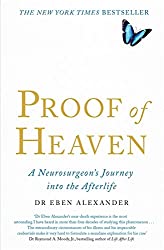Growing up in a Hindu household, the concept of heaven and hell was not very detailed for me. In fact, my initialization into this concept was created in the Catholic convent school that I went to where one was taught about heaven and hell as a consequence of earthly deeds. My forays into other religions and their teachings also led me to gain an understanding of this concept in Islam as well.
The Concept of Heaven and Hell

To keep it simple, we shall have a look at what the three main religions of the world say about heaven and hell and then take the discussion forward.
The Christian Concept of Heaven and Hell – According to Christianity, heaven is where God and the angels live, and hell is the abode of the Devil. Heaven and hell are physical places that one goes to once they die. Paradise is the lowest of all heavens, a place that used to physically connect with Earth via the Garden of Eden. This was however, changed once man partook of the evil fruit and was condemned to live in a sinful state on earth for all eternity. Interestingly, the details of hell are far more elaborate. Dante’s Inferno details the nine levels of hell (in increasing order of the pain and suffering meted out) as:
- Limbo – for virtuous pagans
- Lust – for those who gave into pleasure
- Gluttony – for those consumed in excess
- Greed – for those who are greedy
- Wrath – for those who can’t control their anger
- Heresy – for those who extol other false religions
- Violence – for those who physically hurt
- Fraud – those who deceive and manipulate
- Betrayal – those who betray, others, their family or the county
Heaven and Hell in Islam – Islam believes in something called the Day of Judgement when everyone will be judged and split into two groups – those who will receive the excesses of Jannat (highest level of heaven) and those who will burn in the raging fires of Jahannum (Hell). In fact there are detailed descriptions of what Jannat will like – beautiful gardens, flowing rivers of milk, wine and honey, endless fruits, and beautiful virgins (ahem!). Jahannum is meted out to non-believers, hypocrites, idol-worshippers, arrogant, deceivers, and those who do not believe in Judgement Day.
The Hindu Concept of Heaven and Hell – Slightly different from Christianity and Islam, Hindu’s believe the heaven and hell is transitionary abodes for the soul before they are sent back to earth as another reincarnation. Once a tally of karma is done by Chitragupta, the soul is assigned to Heaven (ruled by Lord Indra) or Hell (ruled by Yama, the God of Death). After a period of time when one has enjoyed the pleasures of heaven to the extent of the good deeds done or suffered enough punishment due to the bad deeds, the soul is sent back to earth. It is said in the Gita that there are three gates leading to hell – anger, lust and greed. While there are real-life stories of people remembering their past life (such miscalculations have occurred), no one seems to have returned telling us what to expect in heaven or hell.
Proof of Heaven

None have gone ahead and detailed heaven in greater detail than Dr. Eben Alexander, a neurosurgeon who experienced a near-death experience for a whole week. He details how other parts of his brain were elevated since his neo-cortex (the part that is responsible for consciousness and awareness) was deeply damaged.
While Dr. Alexander’s book and others that have spoken about their experiences with regards to heaven, no one seems to have visited hell and returned to tell us the tale (wink wink!).
My View of Heaven and Hell
The existence of heaven and hell may not have found enough proof amidst the scientific community and I may be dead before that happens! But here is what I feel:
The concept of heaven and hell has been created as a carrot and stick in the moral science classroom. It is difficult to explain to someone who steals and gets away with it why it is bad for him. He enjoys the money he has stolen and is probably able to buy stuff for his comfort that he would not have been able to otherwise.
Yes, there is the law, but we are talking of someone who knows he can get away with it. Despite what Chinese Philosopher Menzi believed, humans are not born with a common moral code. It is a learnt concept; one that differs across religions, cultures, societies and economic strata too! To ensure we follow specific rules as part of a community, the concept of ultimate judgement (one that no one can prove or confirm) is developed:
- To imbibe fear among those who have thoughts of perpetrating ‘evil’
- To keep the good ones on the good path even as others get away with heinous crimes
- To provide some delayed gratification reward for those suffering moral codes provided by others
The problem with this delayed gratification is that one needs to die to get it. All the good that you have done on this earth will not keep you from dying one day; because die you will. No religion says that if you are a good human being according to the rules we have laid, you will get eternal life on earth (though I wonder if that is a boon or a bane!). They cannot because then one will have proof of whether ultimate justice was meted out or not!
In addition to that, the worldly pleasures promised in heaven or Jannat can hardly be experienced without a physical body; one that you have buried or burnt here on earth.
The real deal is here and now. It is really up to us to create our own heaven – a blissful existence with awareness, compassion and ecstasy (no, not the psychotic drug!).


How well you have summed up . Great thoughts and well put. Keep our up